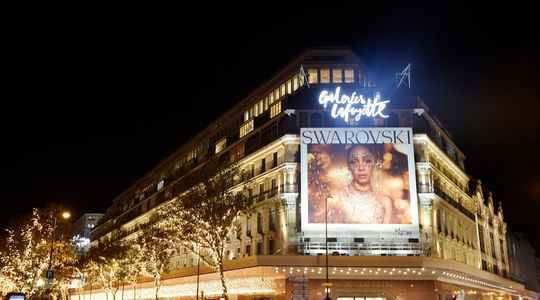Emmanuel Macron calls for sobriety, associations advocate a ban. The decree which provides for the prohibition of illuminated advertising screens, between 1 a.m. and 6 a.m., is insufficient according to a collective (Resistance to advertising aggression, Greenpeace, Alternatiba, Plein la Vue). In a column entitled “Mr. President, turn off the screens” published this Tuesday, September 13 on France infothese associations urge their definitive ban in the face of “ecological and social emergency, in a context of energy crisis and incitement to sobriety”.
On paper, nothing very new: the objective of the decree planned for the end of September is to harmonize the already existing rules for the extinction of illuminated advertisements. For the moment, they simply concern areas with less than 800,000 inhabitants. The previous decree dates from 2012, but “only 6% of municipalities have adopted a regulation to this effect, covering 37% of the population”, specifies the Ministry of Ecological Transition. Another novelty: the measure provides for a fine of up to 1,500 euros for illuminated signs. No details on the implementation of controls or sanctions have been provided.
Stations and airports were to be completely excluded from this system, but a new draft decree now contains the “obligation to switch off illuminated advertisements in the event of a situation of high voltage in the electrical system”, everywhere and at any time. “Light displays in stations and airports must be turned off,” confirmed Clément Beaune, Minister Delegate for Transport, Sunday on France inter, a sign of a desire to speed up the subject. These efforts are part of the energy sobriety plan, announced by Macron in mid-July, which also plans toforce air-conditioned stores to closeand overall aims to reduce French energy consumption by 10% by 2024.
Energy consumption peaks are not nocturnal
The night ban is judged by the associations as “a necessary but derisory response” to the challenges of “social justice” and “ecological transition”. Nicolas Nace, energy transition campaign manager and spokesperson for Greenpeace, notes two inconsistencies in this measure. “The French people’s consumption peaks do not occur at night, but between noon and 2 p.m. and especially between 7 p.m. and 10 p.m., when they turn on their oven, heating or go to a restaurant”, he points out.
Moreover, it is difficult to measure the impact that such a ban would have. ADEME estimated, in a report published in 2020, the consumption of a 2m2 screen at 2,000 kilowatt hours per year, almost the equivalent of the annual consumption of a household (excluding heating and hot water). The ministry then considered that its nocturnal ban saved “the equivalent of the average annual electricity consumption of 110,000 homes”, before acknowledging with Release that this “exact figure” was “difficult to obtain” and that estimates were “in progress”. Contacted by L’Express, the ministry did not respond to our requests for these forecasts. “It’s very complicated to say how much a panel consumes. Some are 2m2, others go up to 50m2 in stations or airports, and they are not based on the same technologies. Very many screens inside the premises, such as real estate agencies for example, are not concerned either”, specifies Thomas Bourgenot, advocacy officer for Resistance to Advertising Aggression.
The associations want to draw attention to a larger issue. “The problem of light pollution should be considered as important as that of energy consumption: it disrupts the sleep cycle of humans and wildlife, and the migration cycles of animals”, insists Thomas Bourgenot, of the association Resistance to Advertising Aggression. For his part, Nicolas Nace, of Greenpeace, denounces the “double discourse” of Emmanuel Macron who “calls for the end of abundance, asks the French to make efforts while encouraging overconsumption with these billboards”. A proposal from the Citizen’s Convention for the Climate, aiming in 2020 to ban these video advertising screens “in public space, public transport and in points of sale”, had, at the time, been rejected by the government. .
